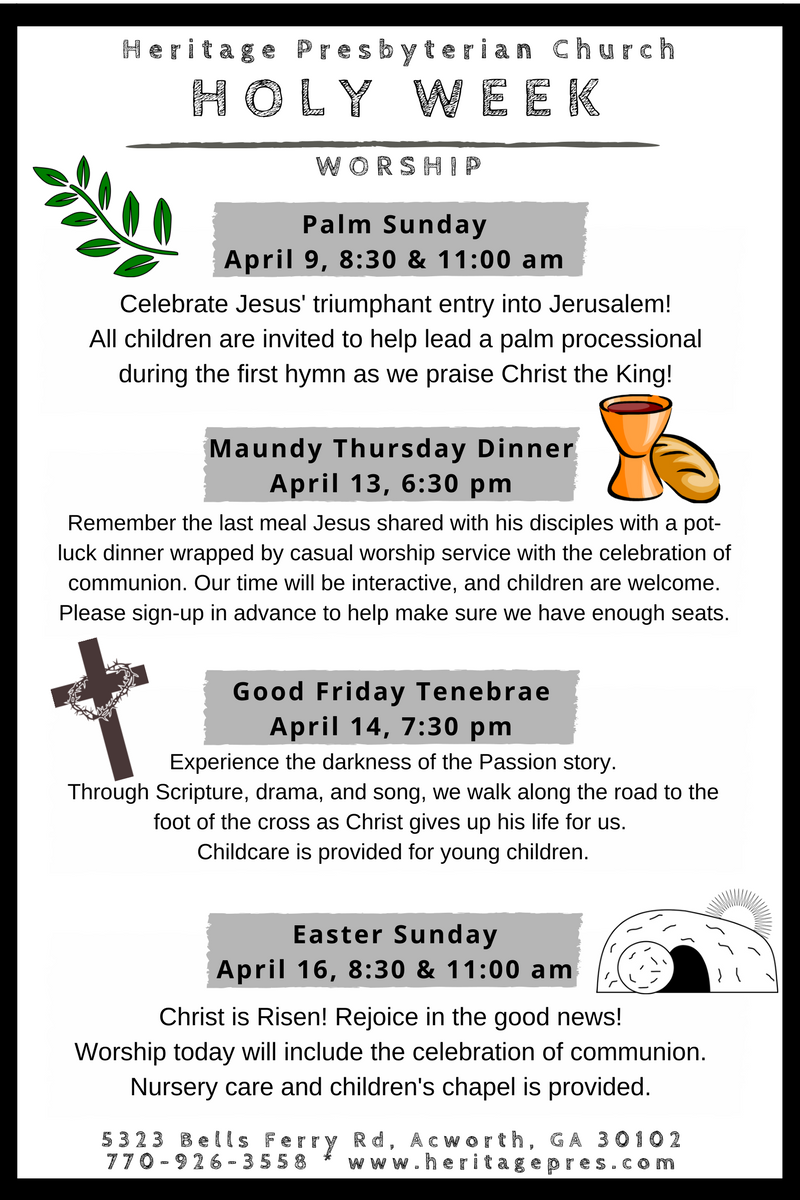Note: This is an outline of the sermon preached by Cassie Waits on February 18, 2018
At our house, there is no toy as useful as a large box. Time and again, my children gravitate – not to the latest toy from the store – but to the simple, humble box.
A box is full of possibilities! It can be a house, a stage, a table, or a car. If you’re re-enacting the story of Noah, that very same box works nicely as a boat.
When it comes to the story of Noah’s Ark – you really do need a boat. Now, we know that Noah was building a boat because we’ve seen the picture. You know the one – it includes Noah and his family, standing in front of the giant boat and all the animals hanging off the top and the rainbow arching overheard.
That’s not the only picture either. Faithful Christians have been trying to paint, draw and otherwise replicate the ark for centuries.
In the pictures we see and in the replicas we visit, we notice one thing: the ark is a boat.
Is it a boat though? Have you ever wondered about that? Why does the Bible insist on calling it an ark? The word “ark” is a bit…archaic in English.
Why not use boat? Why not use ship? The Old Testament has plenty of ships. We find ships in Genesis and Deuteronomy, Judges, Kings, Isaiah, Ezekiel, Psalms, Job, Proverbs, Daniel, Chronicles…ships are everywhere.
Then, we might remember Jonah! God called Jonah to prophecy to the Ninevites and Jonah said, “Sure!” Then he got on a SHIP headed in the opposite direction. The Bible is very clear that Jonah was on a SHIP. Jonah was not on an ark.
Why would God ask Noah to build an ark? What’s so special about an ark?
We might start with the word ark. Merriam Webster’s dictionary says an “ark” is: a boat or ship like the one in which Noah’s family was preserved from the Flood. Of course, we already knew THAT. We want to know what else does “ark” mean?
If we dig a little further, we learn that “ark” comes from a Latin word that means “box.”
This is more helpful. In Genesis 6, we find that God gives Noah exact specifications for the ark. It should be 300 cubits long, 50 cubits wide and 30 cubits high. That’s all God says. We notice that this doesn’t sound like a boat. It sounds like a box.
Is the ark a kind of box?
We could dig still deeper. We could find out that the Hebrew word behind “ark” is tbt (pronounced TAY-vot). As you might have guessed, tay-vot is not the same as the Hebrew word for “ship.” Actually, tay-vot is a rare word. It only occurs in two places in the Bible: in the life of Noah and in the life of Moses. (Remember that basket Moses was placed in as a baby? That’s the other tay-vot.) Both Moses and Noah are saved through a tay-vot. An ark.
Maybe the ark is a kind of basket. Or a place of protection.
We might look a little further though. We would find that there’s still more to this word tay-vot. This word has an interesting history.
In English, we have what’s called a loan word. These are words we borrow from other languages. déjà vu – comes from French and jalapeno comes from Spanish. Ancient Israelites had loan words too. Tay-vot is a loan word. It comes from Egypt.
The Egyptians had a word tbt (pronounced ta-BOOT) The Israelites borrowed it and began to incorporate it into their language. Over time, ta-boot became tay-vot. The Israelites began to use this word in their stories. Then we translated it as “ark” and now we use this word.
What does ta–boot mean? In a general sense, it means “box.” No surprise there.
But more specifically, and more surprisingly, ta-boot means COFFIN.
So, what IS Noah building? We begin to sense the real uncertainty in the story. God has called Noah to a task and it is not altogether clear what the end of that task will be or what Noah’s end will be.
We might understand a little of how Noah feels. We face our own floods in life.
Sometimes the flood we face is an actual flood. It sure doesn’t take a lot of water to ruin a basement.
Sometimes the flood is financial. We don’t know whether we’re right-side-up or up-side-down.
Sometimes the flood is relational. One day all is well, and the next our relationships are breaking and our social support is crumbling.
Sometimes the flood is our health. A minor ache turns into a major issue from which we fear we will not recover.
The floods come and we are powerless to stop them. We are engulfed by chaos. We feel like everything that is certain and real in our lives is being washed away.
We wonder – with Noah – what EXACTLY did God mean by the word tay-vot?
Will Noah’s ark be a place of death? At this moment in the text – it is not clear. It can be hard to sit with that uncertainty. Hard to sit with Noah as the rain begins to fall. Hard not to know where the journey will lead.
We are fortunate. We do know the end of the story. What we find and what Noah finds is that the ARK is the place where God overturns all expectations. For God, this is NOT a place of death, but a place of deliverance.
What we find is that the path to salvation leads us precisely where we DO NOT WANT TO GO. We are saved – not by our safe perch above and away from the flood – but by entering into the very heart of danger and chaos and being carried THROUGH the water – held fast by the hand of God.
When Noah, and later Moses, emerge from the ARK they are REBORN.
The ones who should have been dead find they are very much alive.
When he enters the ark, Noah enters a sacred space. In some sense, it is both a tomb and a womb. The old life has passed away and a new life has begun. But that new life requires Noah to faithfully follow God’s instruction – even in moments of great uncertainty and fear. It requires Noah to be patient, to wait, to give up any hope of steering himself through the storm, and to trust that God will deliver him – not FROM the waters, but THROUGH the waters.
Today is the first Sunday of Lent. During this time, we remember the last days of Jesus and his last long walk to Jerusalem.
The disciples walked with Jesus in his last days. They had followed Jesus and listened to Jesus and learned from Jesus. And yet, like Noah – they also did not really know what was to come. Even to the last hour, they did not recognize how God might be at work.
During Lent, we walk with them. In the uncertainty, in the fear, in the doubt.
Noah walks into the ark with his family. It seems like a dead end. How can they could they possible survive this? How could any person survive? Jesus walks toward Jerusalem and it seems like a dead end. He is crucified. He is laid in a tomb.
And yet, just as Jesus’ tomb could not hold him, neither could the ark hold Noah.
Where we see a box, God sees a boat.
Where we see a place of death, God sees a place of deliverance.
The journey of Lent is our own journey. As we draw to the end of Jesus’ life, we are reminded of the end of our own. On Ash Wednesday, we receive the mark of ashes with these words: “from dust you came, and dust you will become.”
At the end of our days, our dust will be gathered into an ark, but we remember that the ark is more than a box, more than a basket, more than a boat, more than a coffin. It is a place of transformation. A place of radical reversal.
Where we see death, God sees life.
So it was for Noah.
So it was for Moses.
So it is for Jesus.
May it be so for us.
Amen.
~Elder Cassie Waits, M.Div., February 11, 2018
Cassie is a member of Heritage Presbyterian Church, currently under care with Cherokee Presbytery as a candidate for ordination it the PCUSA. She graduated from Columbia Theological Seminary with a M.Div in 2017, and is currently pursuing a Master’s of Theology from Emory University.



